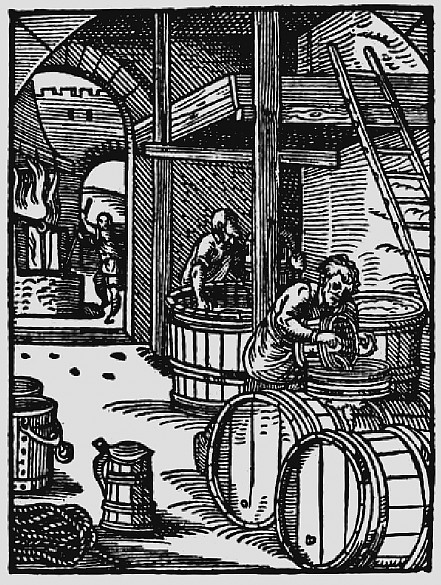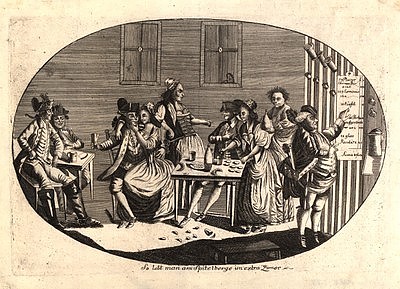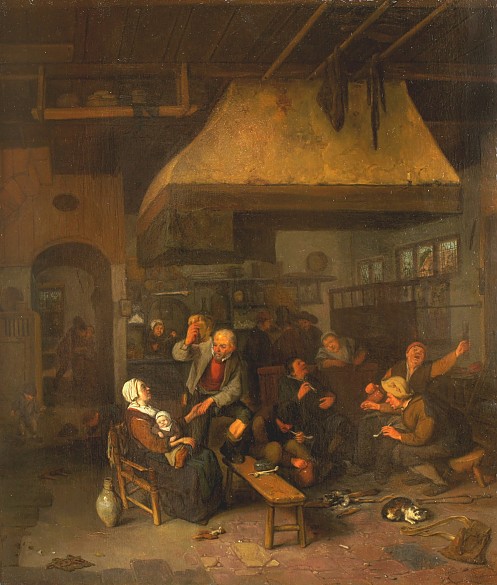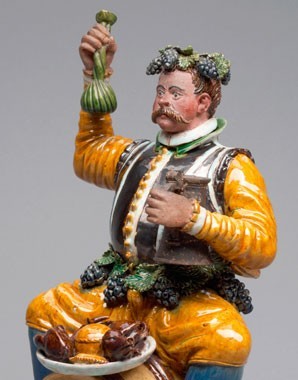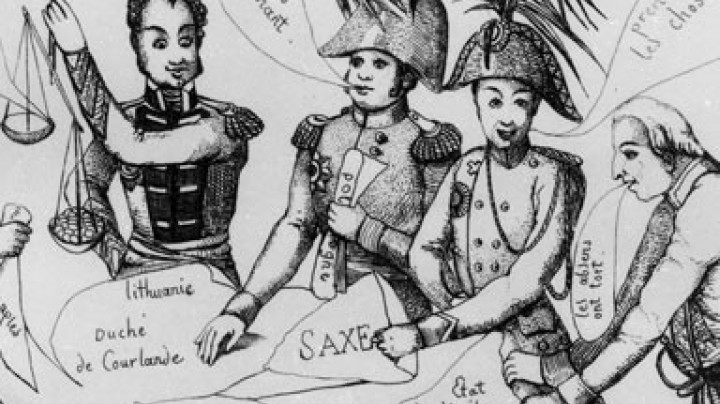Merry on wine and beer – Tales of inns and taverns
Gradually beer replaced wine as the population’s favourite drink. But inns and taverns remained as popular as ever.
‘Modest’ is perhaps the right word to describe the amount of beer drunk by the Viennese in the 1730s. It was about sixty-five litres per head per year: today the average Austrian drinks about twice that amount. From the end of the sixteenth century there was a steady increase in the consumption of beer; by the end of the eighteenth century it was the same as that of the most frequently consumed alcoholic drink, namely wine. In the 1730s the Viennese were still drinking around three times more wine than beer. Brandy and fruit juice also became more popular from the sixteenth century on. It was in particular in the towns that wine was an important drink, because the water supply there was often inadequate and could be a source of epidemics. In the eighteenth and nineteenth centuries the consumption of beer rose and that of wine fell, because increasing prices and taxation meant that the poorer classes could not afford it, so that drinking wine became more and more the preserve of the upper classes.
Alcoholic drinks were served in inns (Gasthäuser), which specialized in either beer or wine and also offered additional services such as beds for the night and fodder and stabling for horses. Taverns (Schenken), some of which also served as staging posts for mail-coaches, were important meeting-places for the inhabitants of both towns and villages: they were where infomation was exchanged, assemblies held and all kinds of occasions celebrated – weddings, baptisms, dances and so on. Because inns and taverns were also places where people might discuss politics and the ruling classes in a critical manner, they were regarded with suspicion by the authorities. They suspected that taverns were places where people gambled, dealt in stolen goods and indulged in immoral behaviour, while making use of the inns as places to recruit soldiers. The main concern of the authorities was to bring ‘order’ to the inns and taverns and to the towns in general: landlords were required, among other things, to check the passes issued to beggars and strangers, and to report people attending Protestant church services.
